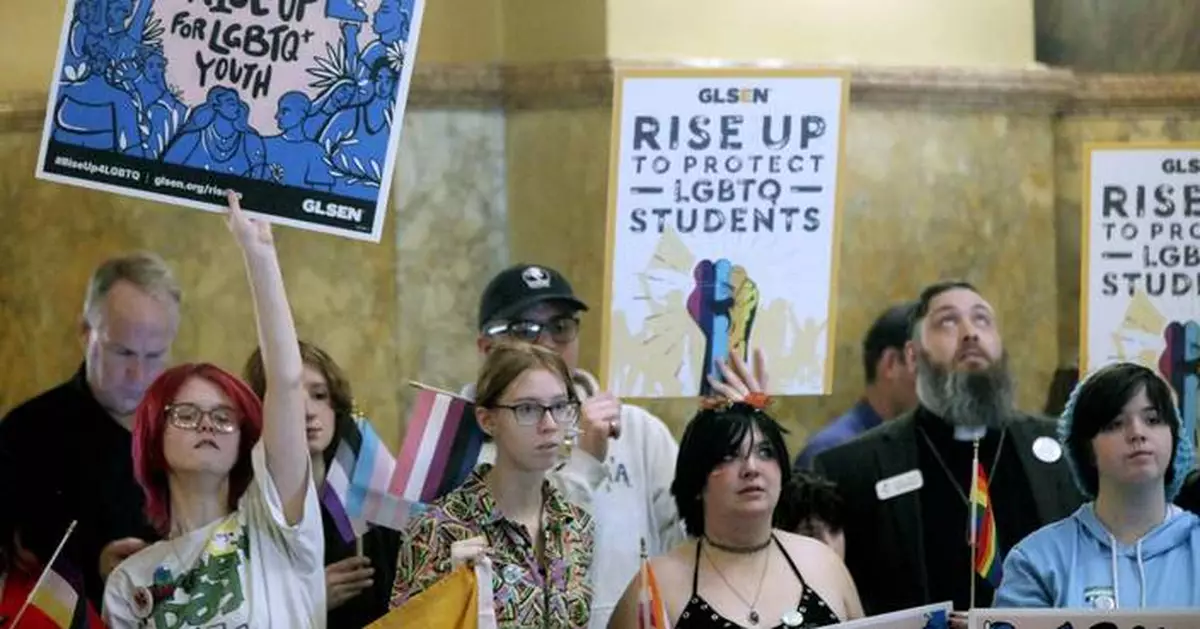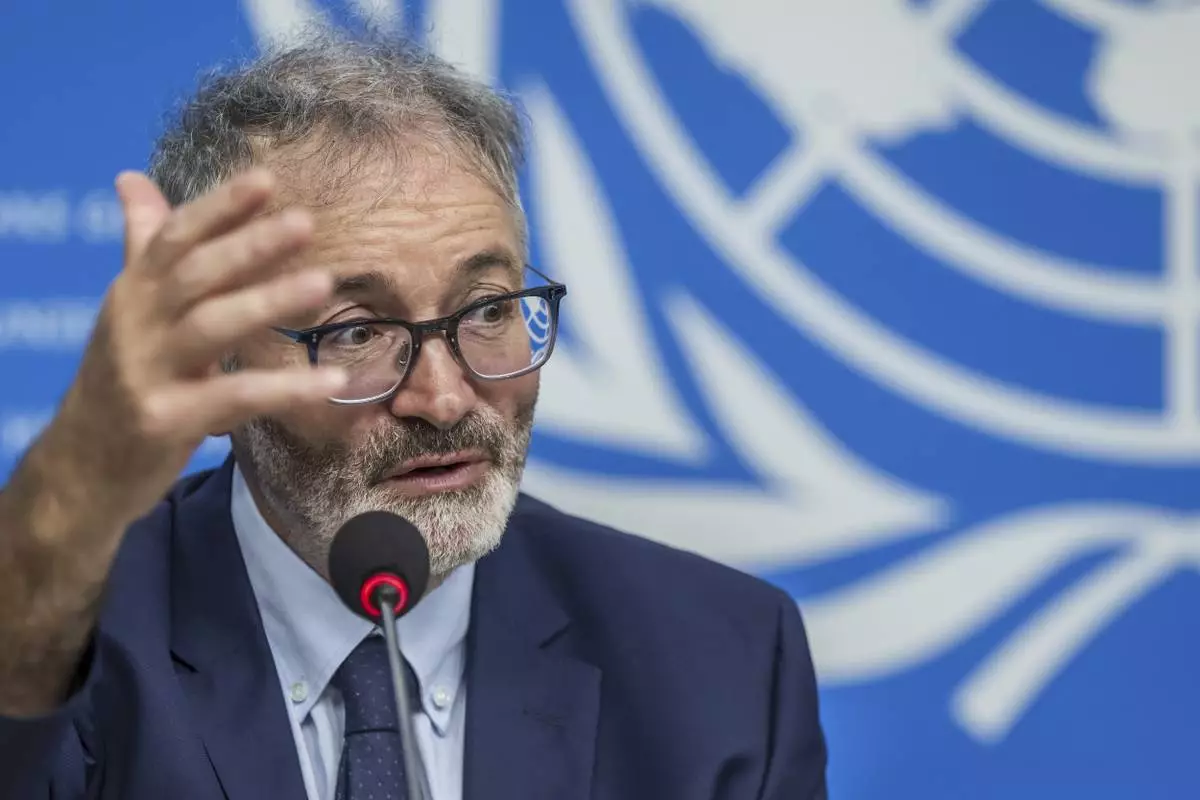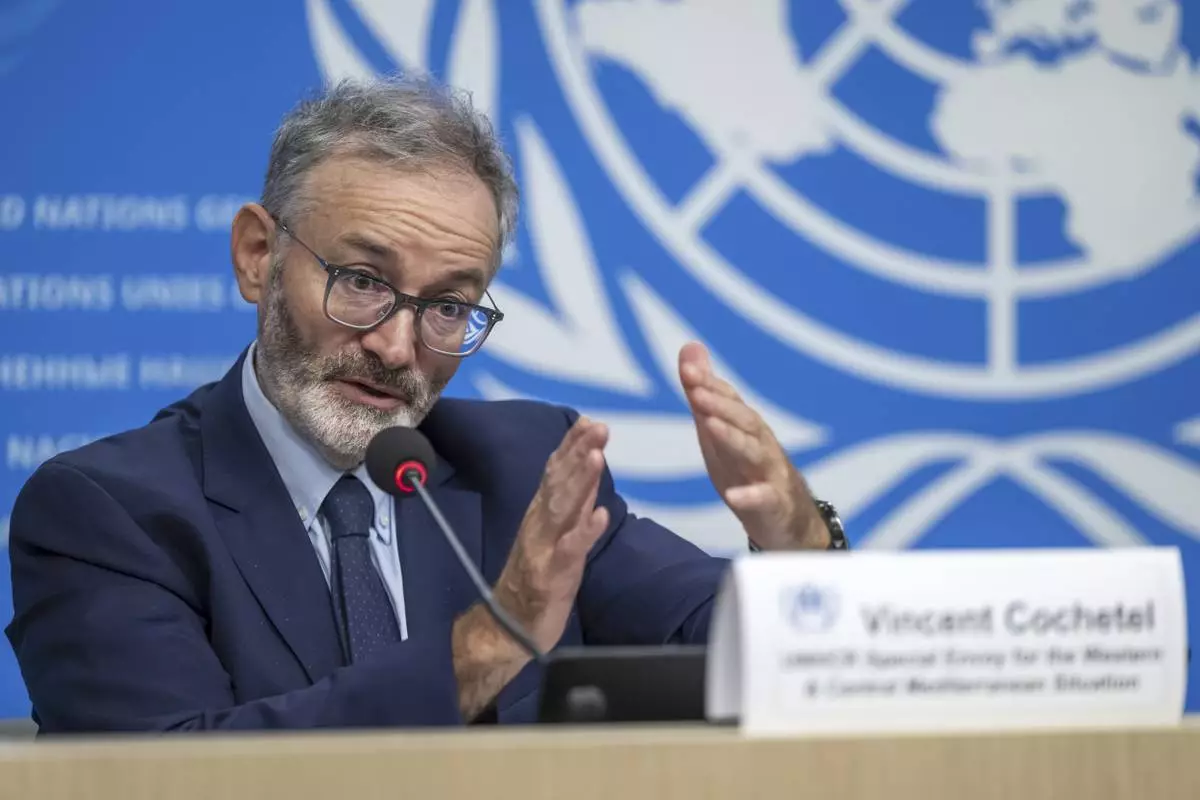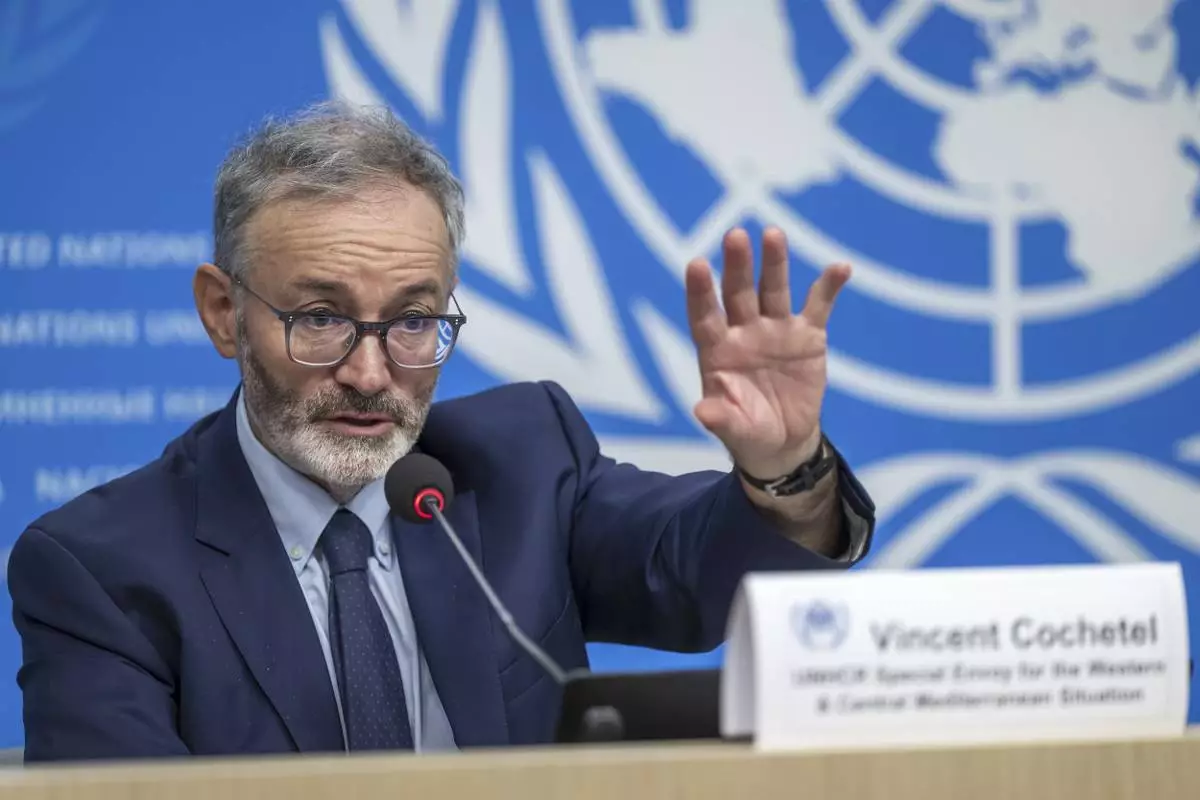TOPEKA, Kan. (AP) — Enforcement of a federal rule expanding anti-discrimination protections for LGBTQ+ students has been blocked in four states and a patchwork of places elsewhere by a federal judge in Kansas.
U.S. District Judge John Broomes suggested in his ruling Tuesday that the Biden administration must now consider whether forcing compliance remains “worth the effort.”
Broomes' decision was the third against the rule from a federal judge in less than three weeks but more sweeping than the others. It applies in Alaska, Kansas, Utah and Wyoming, which sued over the new rule. It also applies to a Stillwater, Oklahoma, middle school that has a student suing over the rule and to members of three groups backing Republican efforts nationwide to roll back LGBTQ+ rights. All of them are involved in one lawsuit.
Broomes, an appointee of former President Donald Trump, directed the three groups — Moms for Liberty, Young America’s Foundation and Female Athletes United — to file a list of schools in which their members' children are students so that their schools also do not comply with the rule. Kansas Attorney General Kris Kobach, a Republican who argued the states' case before Broomes last month, said that could be thousands of schools.
The Biden administration rule is set to take effect in August under the Title IX civil rights law passed in 1972, barring sex discrimination in education. Broomes' order is to remain in effect through a trial of the lawsuit in Kansas, though the judge concluded that the states and three groups are likely to win.
Republicans have argued that the rule represents a ruse by the Biden administration to allow transgender females to play on girls' and women's sports teams, something banned or restricted in Kansas and at least 24 other states. The administration has said it does not apply to athletics. Opponents of the rule have also framed the issue as protecting women and girls' privacy and safety in bathrooms and locker rooms.
“Gender ideology does not belong in public schools and we are glad the courts made the correct call to support parental rights,” Moms for Liberty co-founders Tina Descovich and Tiffany Justice said in a statement.
LGBTQ+ youth, their parents, health care providers and others say restrictions on transgender youth harms their mental health and makes an often marginalized group even more vulnerable. The Department of Education has previously stood by its rule and President Joe Biden has promised to protect LGBTQ+ rights.
The Department of Education did not immediately respond to an email seeking comment Tuesday.
Besides Broomes, two other federal judges issued rulings in mid-June blocking the new rule in 10 other states. The rule would protect LGBTQ+ students by expanding the definition of sexual harassment at schools and colleges and adding safeguards for victims.
Like the other judges, Broomes called the rule arbitrary and concluded that the Department of Education and its secretary, Miguel Cardona, exceeded the authority granted by Title IX. He also concluded that the rule violated the free speech and religious freedom rights of parents and students who reject transgender students' gender identities and want to espouse those views at school or elsewhere in public.
Broomes said his 47-page order leaves it to the Biden administration “to determine in the first instance whether continued enforcement in compliance with this decision is worth the effort.”
Broomes also said non-transgender students' privacy and safety could be harmed by the rule. He cited the statement of the Oklahoma middle school student that “on some occasions” cisgender boys used a girls' bathroom “because they knew they could get away with it.”
“It is not hard to imagine that, under the Final Rule, an industrious older teenage boy may simply claim to identify as female to gain access to the girls' showers, dressing rooms, or locker rooms, so that he can observe female peers disrobe and shower,” Broomes wrote, echoing a common but largely false narrative from anti-trans activists about gender identity and how schools accommodate transgender students.
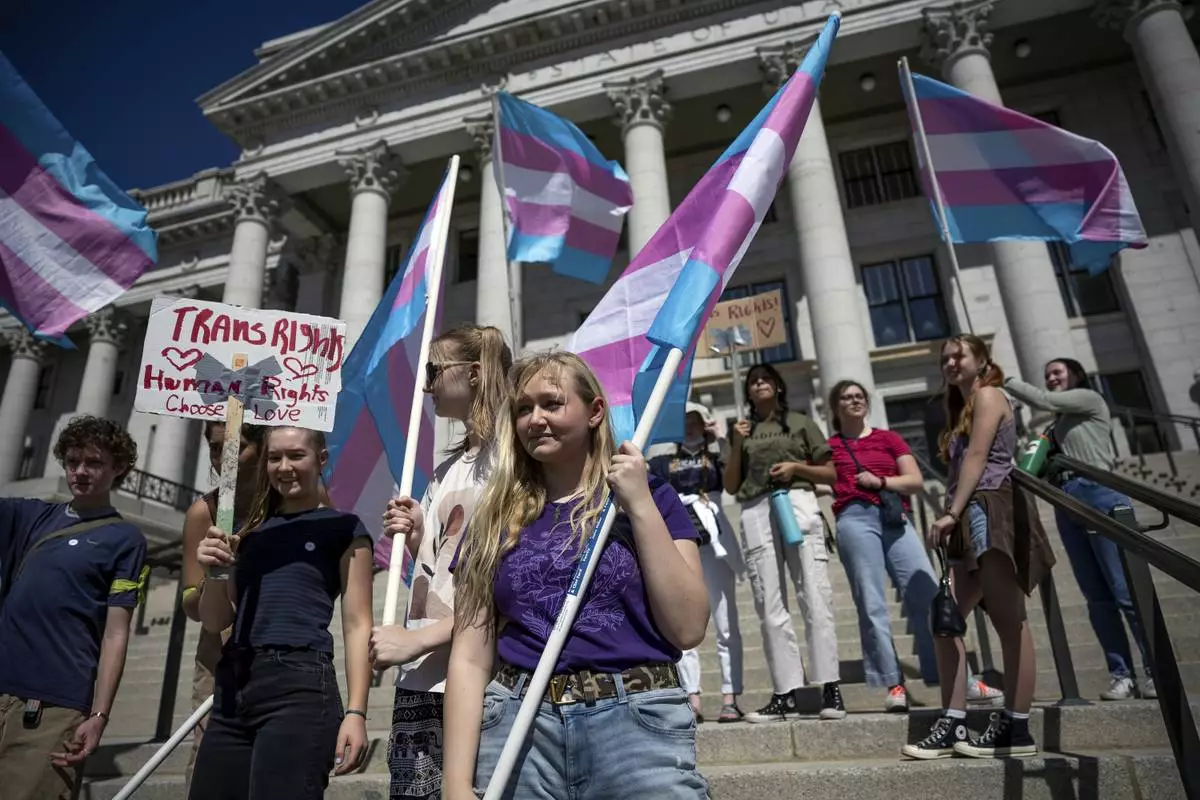
FILE - Misy Sifre, 17, and others protest for transgender rights at the Capitol in Salt Lake City, March 25, 2022. On Tuesday, July 2, 2024, a federal judge in Kansas blocked a federal rule expanding anti-discrimination protections for LGBTQ+ students from being enforced in four states, including Utah and a patchwork of places elsewhere across the nation. (Spenser Heaps/The Deseret News via AP, File)
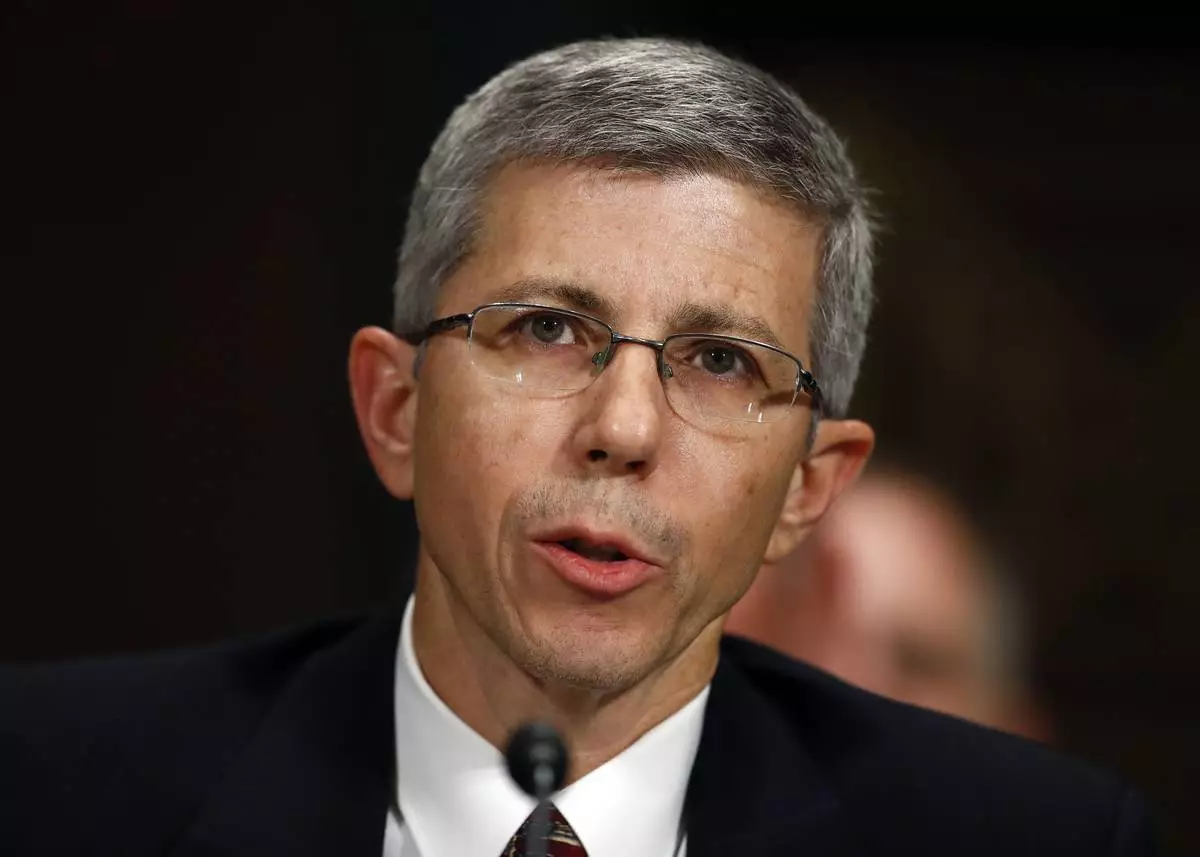
FILE - John Broomes, nominated to be United States District Judge for the district of Kansas, testifies during a Senate Judiciary Committee hearing on nominations on Capitol Hill in Washington, Nov. 15, 2017. On Tuesday, July 2, 2024, U.S. District Judge Broomes blocked a federal rule expanding anti-discrimination protections for LGBTQ+ students from being enforced in four states and a patchwork of places elsewhere across the nation. (AP Photo/Carolyn Kaster, File, File)
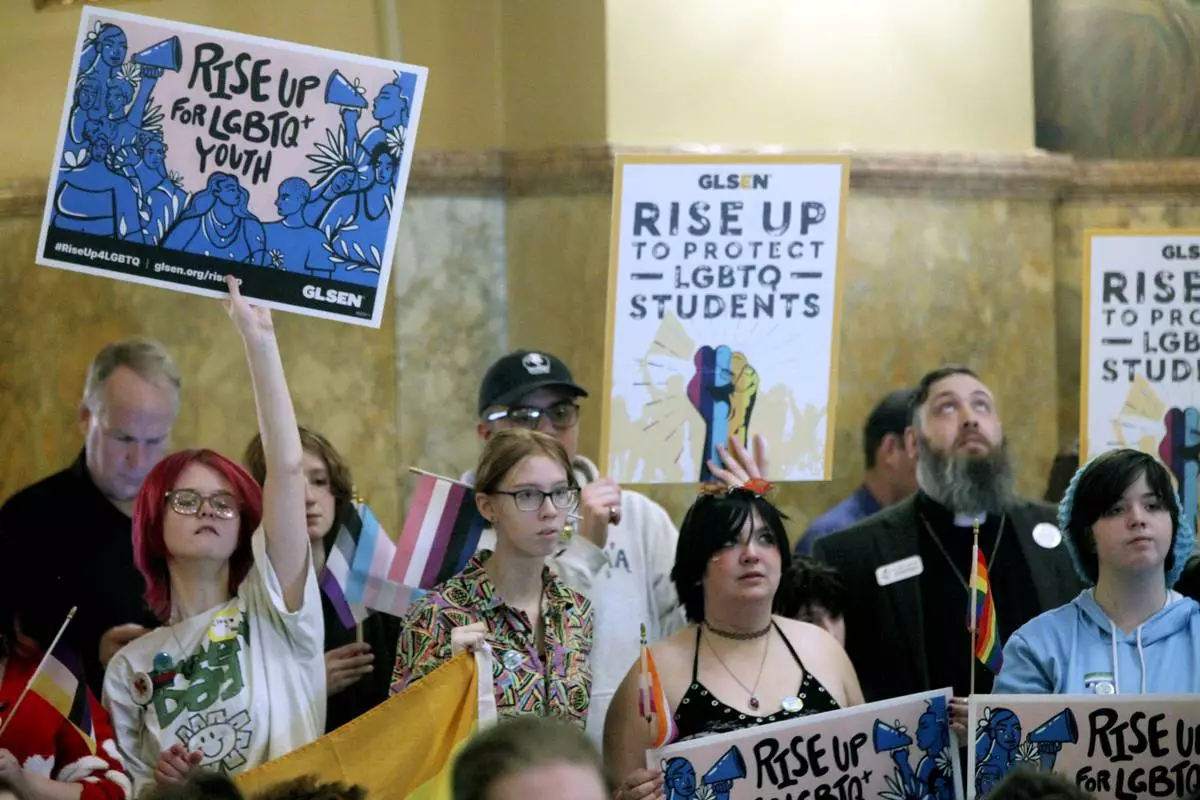
FILE - Kansas high school students, family members and advocates rally for transgender rights, Jan. 31, 2024, at the Statehouse in Topeka, Kan. On Tuesday, July 2, a federal judge in Kansas blocked a federal rule expanding anti-discrimination protections for LGBTQ+ students from being enforced in four states, including Kansas and a patchwork of places elsewhere across the nation. (AP Photo/John Hanna, File)


